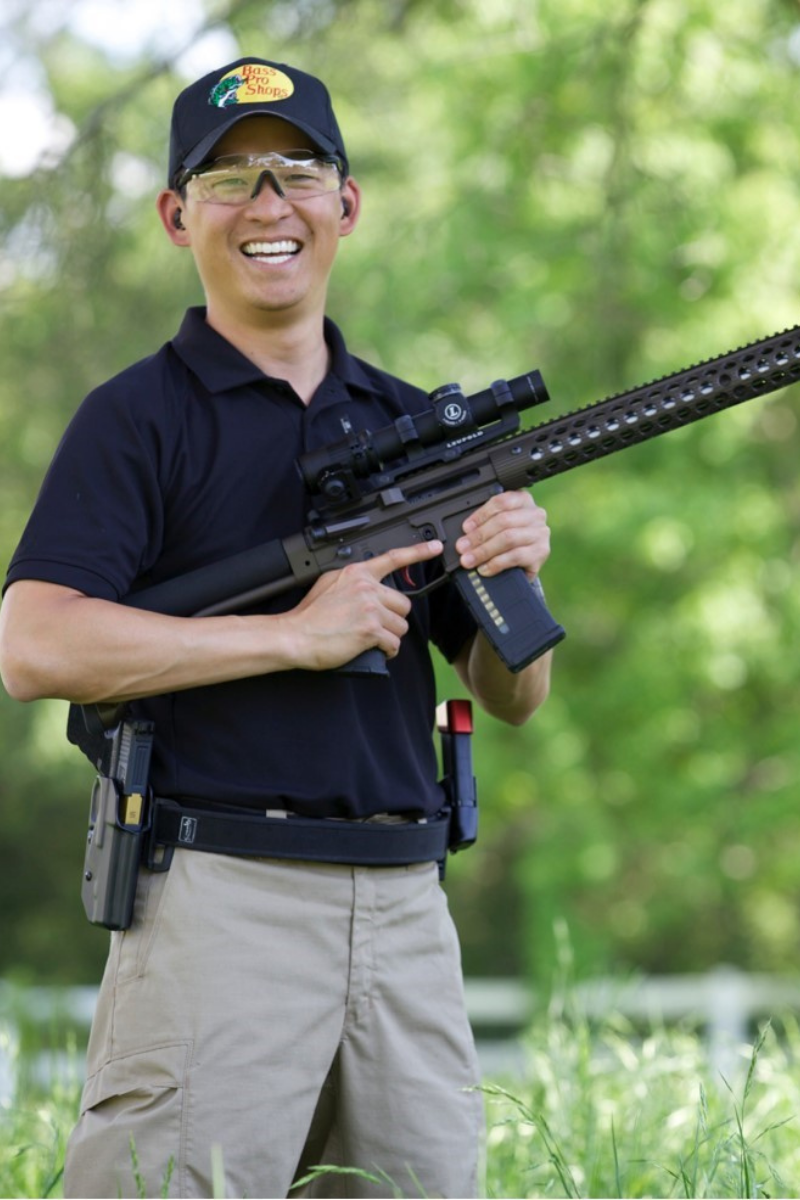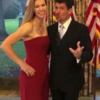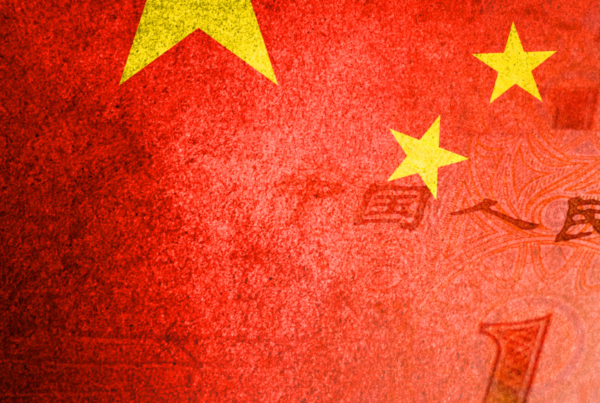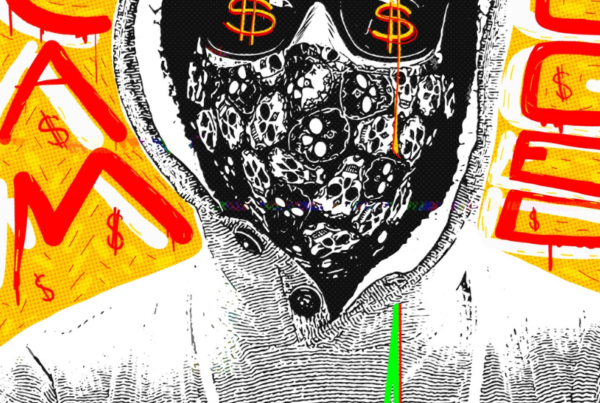Non-fungible tokens (NFTs) are original non-interchangeable units of data held on a digital ledger known as the blockchain. It can be anything from photos, videos, audio, or art, where buyers and sellers alike are verified with the unique digital object which can be stored and sold like a limited-edition collector’s item with the same potential to increase in value over time.
An NFT firearm is an exclusive piece existing in your private digital space and kept safely in the metaverse far from those seeking restrictions on legal and responsible gun ownership. Of course, virtual guns aren’t quite the same as the real thing, but they represent a new evolution in efforts to protect the Second Amendment while disrupting the booming industry of tactical marketing.
“I have been in Silicon Valley since 2007. I’ve always been a technologist. Then, about a year and a half ago, NFTs hit my radar. I was just so confused, such a skeptic. What am I missing?” says Chris Cheng, Season 4 winner of The History Channel’s “Top Shot’ and founder of new firearms NFT marketplace Revolve. “That is the big question many of us might be asking ourselves when you see the astronomical dollar amounts being thrown around for some NFT sales. Once I started digging, not just into the technology but the potential utility, I went from skeptic to believer.”
The lightbulb moment for Cheng came when he scrolled through NBA Top Shot; the basketball league’s NFT marketplace featuring everything from playoff memorabilia photos to jaw-dropping 15-second highlight reels showcasing slam dunks and game-winning three-pointers.

“I’m not a basketball fan. I don’t follow sports anymore. But I used to play a ton of baseball and collected baseball cards as a kid. That baseball card collecting analogy helped me understand why there are people who are buying, trading, selling and collecting NFT collector cards,” he continues. “This is why I have evolved into starting an NFT firearms-focused marketplace.”
Set to launch in the first quarter of 2023, Revolve already has a letter of partnership intent from the Firearm Industry Trade Association (NSSF) to sell licensed NFT collectibles on the platform as well as the United States Concealed Carry Association (USCAA).
From Cheng’s purview, the most successful NFT entities create communities centered around certain hobbies or sports, hence why most major sporting leagues are launching or have already launched their own NFT marketplaces.
“We’re going to start with 15-second Tik Tok-style videos that will show the product. It is a way for marketing departments to extend their reach,” Cheng enthuses. “Marketing departments are typically cost centers, not revenue-generating. But NFTs really open a field to monetize marketing content in ways we have never seen before, and that is really exciting.”
Indeed, it is a segment of the industry already gleaning attention. The new Digital Arms platform also enables users to “be the sole verified owner of a licensed digital firearm” and has already entered into an agreement with major manufacturer Barrett. In addition, the platform has declared it wants to build and release firearm NFTs that will have unique capabilities from adding multiple accessories such as optical sights, magazines, grips, suppressors, and be reskinned in different colors, primarily to be utilized by firearms, hunting and gaming enthusiasts.
“Both gamers with a long history of using this rifle in various gaming platforms and Barrett sport shooters to law enforcement, military, and brand enthusiasts that use the rifle on the range will now be able to join the cryptocurrency movement by owning a digital token in a sector that interests them,” the company said in a statement. “The Digital Arms platform will provide a metaverse for users to purchase licensed firearm NFTs that have interoperability with games and digital platforms. Some opportunities to note include gaming, trading, wearables, accessorizing, collecting, and investing.”
But Barrett isn’t the only prominent player blasting into the arena. On the heels of announcing their unique Moonshot 1911 pistol earlier this year, Cabot Guns also declared it was stepping into unchartered terrain as the first firearms company to offer a digital NFT firearm collection, including the one-of-a-kind Moonshot, in addition to at least 22 other carefully selected arms displayed on the OpenSea platform.
Moreover, it’s a way for the seller – whether it be a prominent arms manufacturer, a mom-and-pop gun shop or an individual – to earn and redeem the rewards. Given that each NFT is stored with its own encrypted ID on the blockchain, each time the NFT is sold, the original seller stands to make a percentage of the profits. The more an NFT climbs in value, the more value it can generate over its lifetime.
“That is massive potential. A lot of manufacturers could probably make more money with NFTs than actual firearms,” Cheng anticipates. “And NFTs are not impacted by supply chain issues or procurement or parts. It is just about putting the products on the market.”
Beyond just being part of the next wave of firearms commerce in the shadowy metaverse, blockchain technology and NFTs can also be implemented for good. For one, last fall, RECOIL magazine auctioned off an NFT of its first-ever cover art, issue number 56 featuring Cheng, with all $31,000 of proceeds donated to Second Amendment advocacy groups such as Pink Pistols and the Firearms Policy Coalition.
Cheng says that while it takes a bit of time for people to fully get their heads around the concept and the opportunities, it’s a movement that is undoubtedly taking hold across a wide array of communities and interests.
“Look at video NFTs; it is a storytelling vehicle. It’s not always just about the product – it is about the values of that firearm, such as freedom, safety, family, heritage, lineage, and emotion that comes with storytelling,” Cheng adds. “In the past, storytelling and marketing content has been about getting us to go and buy the thing, the object. But in this case, we are buying the story.”
The story of firearm focused NFTs is still taking shape but in an era of uncertainty regarding the Second Amendment, they are offering new ways to build communities, create conversations, and push innovations across the metaverse.











